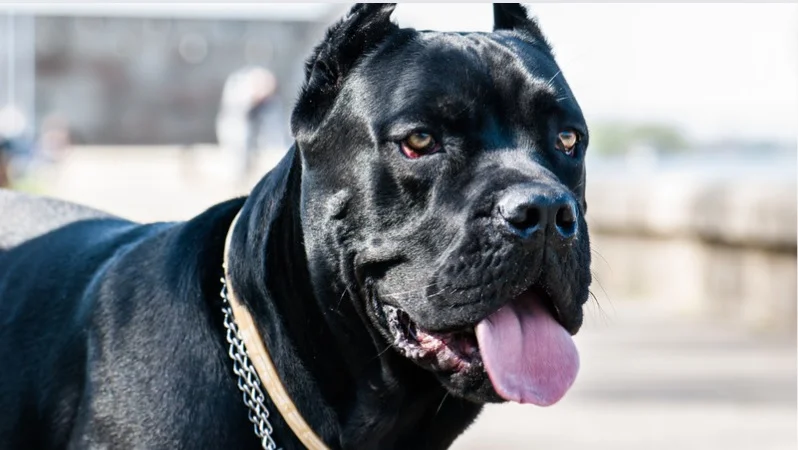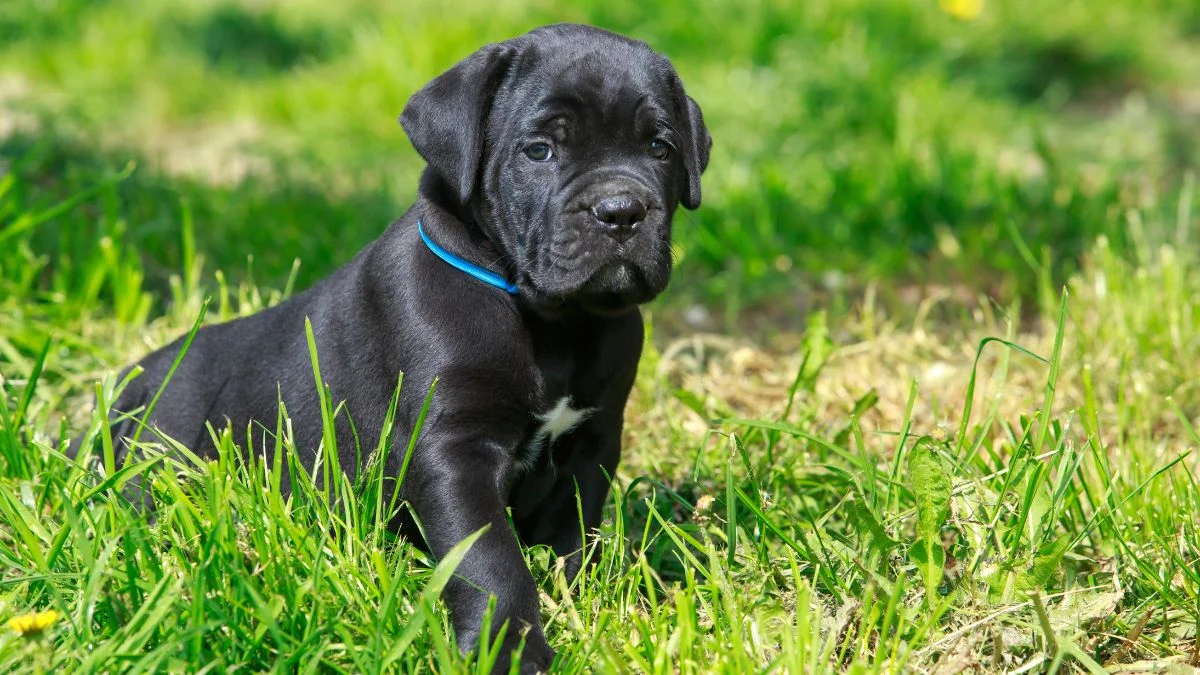The Cane Corso, a remarkable Italian breed of mastiff, is known for its imposing appearance, intelligence, and versatility. Among the various color variations, the black Cane Corso stands out as a striking and elegant representation of the breed. This article delves into the history, characteristics, care, and training of the black Cane Corso, highlighting why it has become a popular choice for families and dog enthusiasts alike.
Historical Background of the Cane Corso
The Cane Corso’s lineage can be traced back to ancient Italy, where it was used for hunting large game, herding cattle, and protecting livestock. It is believed to be a descendant of the Roman war dogs, which were renowned for their strength and bravery. The breed was once widespread across the Italian peninsula but became increasingly rare after the collapse of the mezzadria system of share-cropping in the 1960s.
By the 1980s, efforts were made to revive the breed through selective breeding programs. The formation of the Società Amatori Cane Corso in 1983 marked a turning point, as breeders worked diligently to preserve the breed’s unique traits. The Cane Corso was officially recognized by the Ente Nazionale della Cinofilia Italiana in 1994, followed by provisional acceptance by the Fédération Cynologique Internationale (FCI) in 1996 and full recognition in 2007. The breed was also recognized by the American Kennel Club (AKC) in 2010, further solidifying its status as a beloved companion and working dog.
Characteristics of the Black Cane Corso
The black Cane Corso is known for its muscular build, broad head, and strong jaws. Males typically weigh between 110 to 120 pounds, while females weigh between 80 to 100 pounds. Their height ranges from 24 to 28 inches at the shoulder. The breed’s coat is short, dense, and shiny, with the black color being one of the most sought-after variations. Some black Cane Corsos may have small white markings on their chest or toes, but these should not be extensive.
One of the breed’s most notable features is its confident and protective demeanor. Black Cane Corsos are known for their loyalty to their families and their natural instinct to guard their territory. This makes them excellent watchdogs, capable of alerting their owners to any potential threats. However, their protective nature also requires responsible ownership and proper training.
Temperament and Behavior
The black Cane Corso possesses a balanced temperament, characterized by intelligence, loyalty, and a gentle disposition towards its family. While they may appear intimidating, these dogs are known to be affectionate and playful with their loved ones. They thrive on human interaction and require socialization from an early age to ensure they grow into well-rounded adults.
Despite their friendly nature, black Cane Corsos can be reserved around strangers. Early socialization, exposure to various environments, and consistent training are essential to help them feel comfortable in unfamiliar situations. With proper guidance, they can distinguish between normal situations and potential threats, making them reliable protectors.
Care and Maintenance
Caring for a black Cane Corso involves several key aspects, including nutrition, grooming, exercise, and health monitoring.
Nutrition
Feeding a black Cane Corso a high-quality diet is essential for its overall health and development. Due to their large size, these dogs are prone to certain health issues, including hip dysplasia and obesity. Providing them with a balanced diet rich in protein and essential nutrients can help mitigate these risks. It’s crucial to consult with a veterinarian to determine the appropriate diet and feeding schedule based on the dog’s age, weight, and activity level.
Grooming
The black Cane Corso’s short coat requires minimal grooming, making it relatively low-maintenance. Regular brushing, at least once a week, helps remove loose hair and dander, promoting a healthy coat. Bathing should be done as needed, typically every few months or when the dog becomes particularly dirty. Additionally, regular dental care, nail trimming, and ear cleaning are essential components of grooming to ensure the dog’s overall health.
Exercise
As an active breed, the black Cane Corso requires regular exercise to maintain physical and mental well-being. Daily walks, playtime in a secure yard, and engaging activities such as obedience training or agility exercises are vital for their development. Without adequate exercise, Cane Corsos may become bored and exhibit undesirable behaviors, such as chewing or digging.
Health Monitoring
Regular veterinary check-ups are crucial for monitoring the health of a black Cane Corso. Common health concerns for the breed include hip dysplasia, elbow dysplasia, and certain genetic conditions. Early detection and preventative care can help ensure a long and healthy life for these magnificent dogs.

Training the Black Cane Corso
Training a black Cane Corso requires patience, consistency, and positive reinforcement. Their intelligence makes them quick learners, but they can also exhibit stubbornness if not properly motivated. Starting training early is essential to establish a strong foundation for obedience and socialization.
Socialization
Introducing a black Cane Corso to various environments, people, and other animals during the critical early socialization period (between 3 and 14 weeks of age) is vital. Positive experiences during this time will help the dog develop confidence and adaptability in different situations.
Obedience Training
Basic obedience training should begin as soon as the dog enters its new home. Teaching commands such as “sit,” “stay,” “come,” and “heel” will establish a strong communication bond between the dog and its owner. Consistency and positive reinforcement techniques, such as treats and praise, will encourage the dog to respond to commands reliably.
Advanced Training
For owners interested in expanding their dog’s skill set, advanced training in areas such as agility, protection work, or therapy dog certification can be rewarding. Engaging the black Cane Corso in these activities not only provides mental stimulation but also strengthens the bond between the dog and its owner.
Conclusion
The black Cane Corso is a majestic and versatile breed with a rich history and an endearing personality. Known for its loyalty, intelligence, and protective nature, this breed can make a wonderful companion for families and individuals alike. With proper care, training, and socialization, the black Cane Corso can thrive in a loving home, becoming not only a formidable guardian but also a cherished family member. As interest in this magnificent breed continues to grow, responsible ownership and education about their unique needs will ensure that the Cane Corso remains a beloved companion for generations to come.









